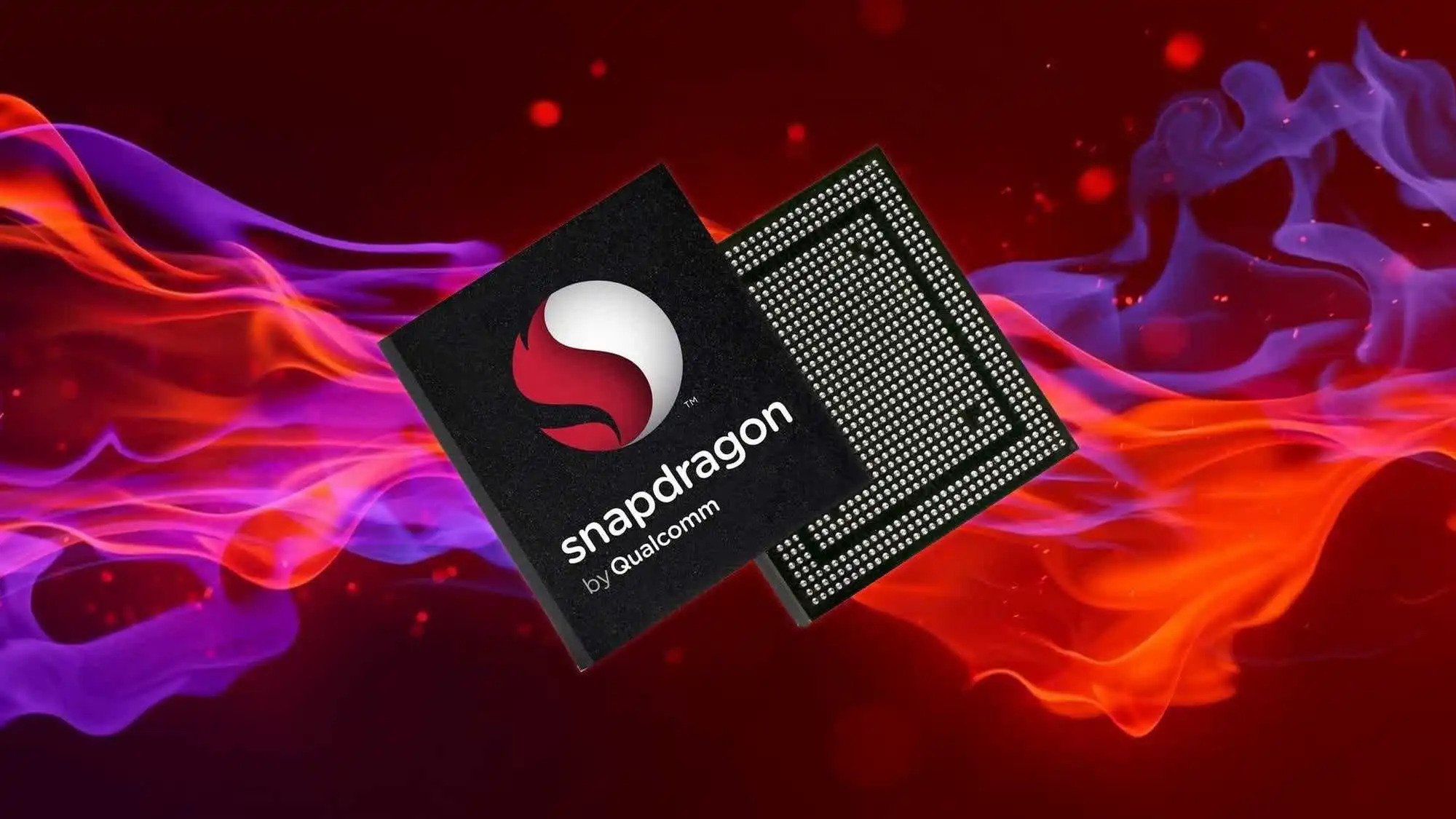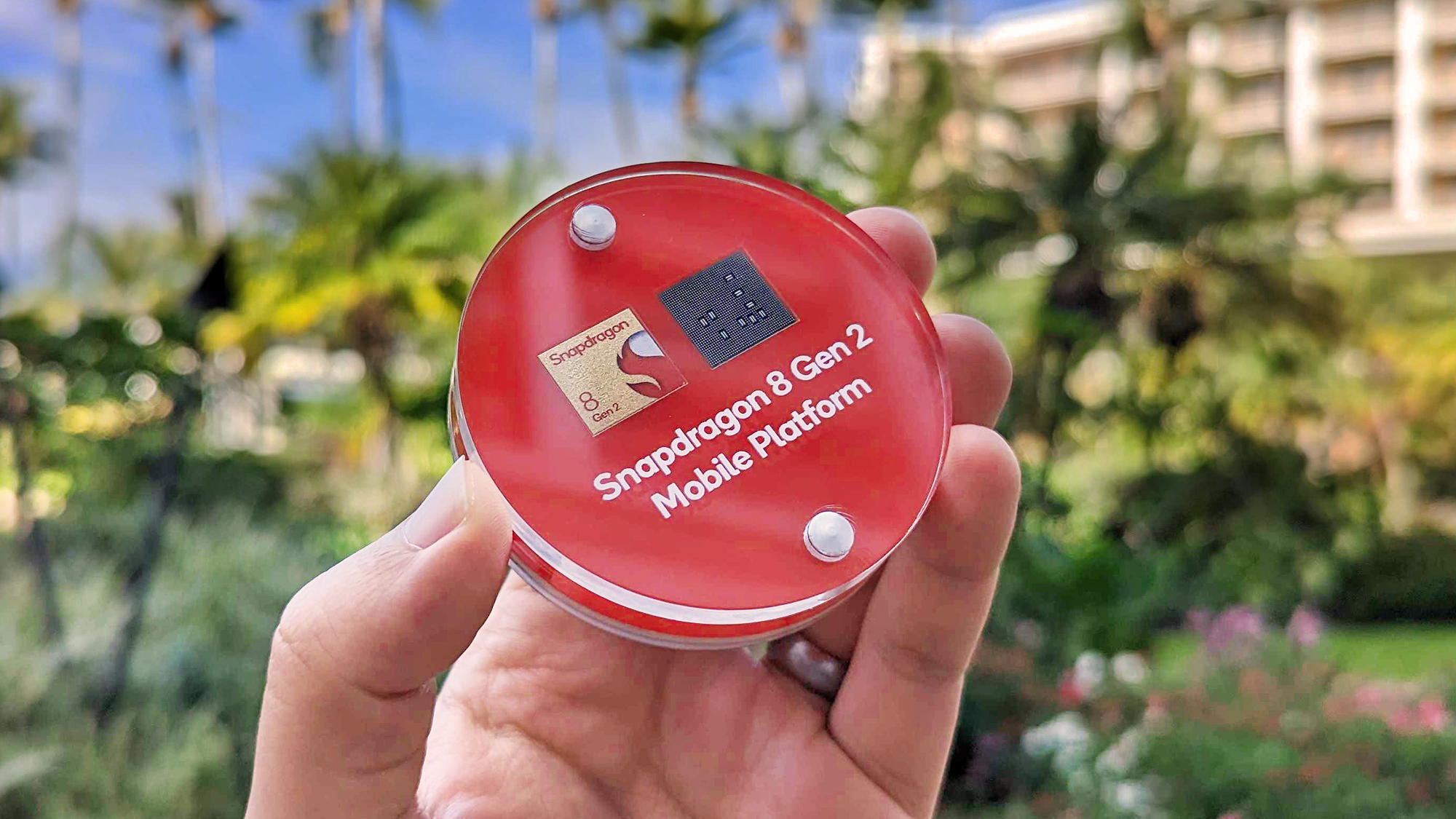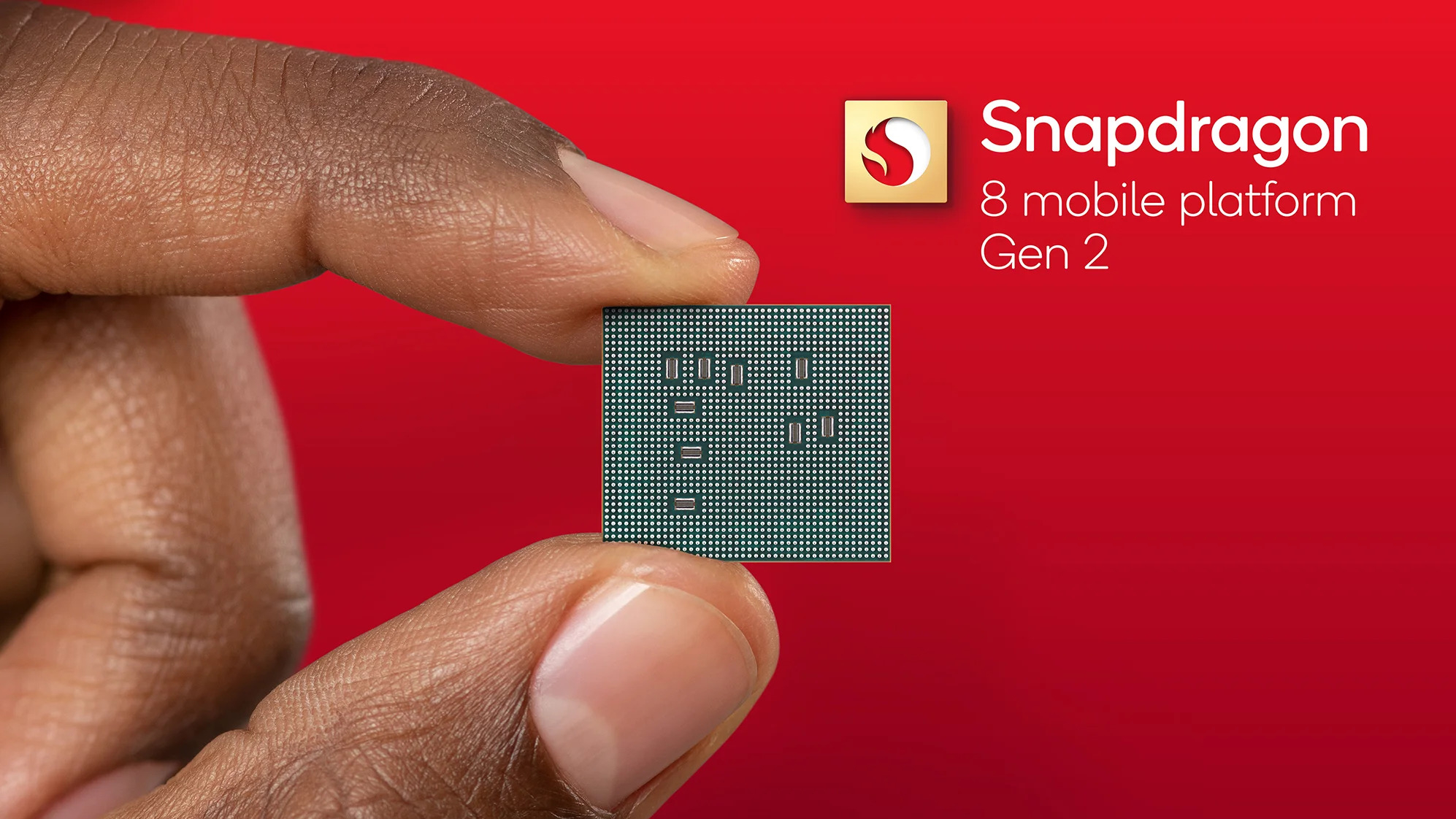Snapdragon 8 Gen 3: what to expect from Qualcomm's next flagship chipset
The 8 Gen 3 will be Qualcomm's most powerful chipset yet

Qualcomm’s Snapdragon processors power almost all of the best Android phones out there right now, and the semiconductor giant is expected to unveil its latest and greatest chipset – likely called the Snapdragon 8 Gen 3 – at its annual Snapdragon Summit in October this year.
Qualcomm typically uses this summit to talk up its role in shaping the future of mobile, automotive, audio and mixed reality experiences, meaning we’re likely to get a better idea of how future flagship phones from the likes of Samsung, Xiaomi and OnePlus might perform, too.
Below, we’ve rounded up all the latest news and rumors surrounding the Snapdragon 8 Gen 3, including details on its specs, release date and the devices in which the chipset could soon feature.
Cut to the chase
- What is it? Expected to be Qualcomm's new flagship mobile chipset
- When is it out? Rumored for October 26
- How much will it cost? As with the Snapdragon 8 Gen 2, Qualcomm will likely sell the 8 Gen 3 directly to OEMs (original equipment manufacturers). The flagship phones set to use it, though, will cost north of $800 / £700 / AU$1,200.
Snapdragon 8 Gen 3: release date

Qualcomm typically unveils its new and improved Snapdragon processors at its annual Snapdragon Summit, which is due to take place on October 26 this year (as confirmed by Qualcomm in the below tweet).
Livestreaming from Maui, Hawaii, our 8th annual #SnapdragonSummit kicks off on Tuesday, 10/24. Be sure to tune in — we’ve got lots to share. Stay updated here or on our website: https://t.co/nxXT4lCwyF pic.twitter.com/t5FZ7tLwuSOctober 16, 2023
That's not to say we'll see phones featuring the Snapdragon 8 Gen 3 as soon as late October, but it does seem likely that at least one device could arrive boasting the new chipset before the end of 2023.
Indeed, some rumors indicate that Xiaomi will be the first company to bring the 8 Gen 3 to the market, with its Xiaomi 14 and Xiaomi 14 Pro.
Snapdragon 8 Gen 3: news and leaks

We've already heard a smattering of rumors concerning the power of the Snapdragon 8 Gen 3. Initially, two Twitter leakers – RGcloudS and Revegnus – claimed to have seen detailed performance specs for the upcoming chipset, though the pair disagreed on the figures.
Get daily insight, inspiration and deals in your inbox
Sign up for breaking news, reviews, opinion, top tech deals, and more.
Both tipsters suggested that the Snapdragon 8 Gen 3 will be manufactured by TSMC using the latter's 4nm process node, but while RGcloudS expected the upcoming chipset to feature one high-performance Cortex-X4 core, four performance cores and three efficiency cores – a setup akin to the Snapdragon 8 Gen 2 – Revegnus proposed a 1-5-2 configuration.
To get more granular, RGcloudS claimed that this high-performance core will be clocked at 3.7GHz, which would mark a 15% speed increase over the 3.2GHz clock speed of the Snapdragon 8 Gen 2. Revegnus, however, expected the 8 Gen 3’s main core to boast the same 3.2GHz clock speed as its predecessor, albeit with the additions of an Adreno 750 GPU and Snapdragon’s X75 5G modem (which, they said, will bring a 20% improvement in energy efficiency).
Snapdragon 8gen3 rumorsTSMC N4P 1 + 5 + 2 architecture, a Cortex-X4 mega-core 3.75GHzfive Cortex-A720 large core 3.0GHz two Cortex-A520 small core 2.0GHz than Snapdragon 8gen2 more than one performance core, less than the energy efficiency core. The GPU is Adreno750. pic.twitter.com/MTGOtnL46EMarch 9, 2023
A more recent rumor from a more reliable Android leaker and developer, Kuba Wojciechowski, claims that the Snapdragon 8 Gen 3 will rock a different setup entirely. According to him, the Snapdragon 8 Gen 3 will have "2x Arm codename Hayes (A5xx) 'silver' cores, 3x Arm codename Hunter (A7xx) 'gold' cores, 2x Arm codename, Hunter (A7xx) 'titanium' cores, and 1x Arm codename Hunter ELP (Xn) 'gold+' core."
He also notes that the Hayes and Hunter cores were as yet unannounced by Qualcomm and would be dropping 32-bit app support on any Android phones that they powered. Google's Tensor processor already dropped 32-bit, and Apple's iOS as a whole did so years ago. The impact of this could be low, but a few Android apps still use 32-bit configuration.
Wojciechowski concurs that the 8 Gen 3 will be launching in late 2023, however.
🐉 Qualcomm Snapdragon 8 Gen 3 to come with 2+3+2+1 next-gen Arm cores, Adreno 750, more: leak 🧵 pic.twitter.com/TAYu8GsDtoMarch 23, 2023
That configuration is in line with a benchmark that we've now seen for the Snapdragon 8 Gen 3. This points to a 3.3GHz primary core, plus a trio of 3.15GHz cores, two 2.96GHz cores, and two 2.27GHz cores.
Given that Wojciechowski has a more solid track record overall and their claims match the benchmark above, we're inclined to give their prediction the most credence.
Sadly, that also means we probably won't see a 3.7GHz primary core as has elsewhere been rumored, with this benchmark pointing to performance that's broadly in line with the A16 Bionic found in the iPhone 14 Pro.
All that said, it’s clear that the Snapdragon 8 Gen 3 will deliver some form of significant performance improvements over the Snapdragon 8 Gen 2. Indeed, the very latest rumors (as reported by well-known tipster Digital Chat Station) point to a 15% increase in CPU performance and a 39% increase in GPU performance over the Snapdragon 8 Gen 2.
Of course, raw benchmark figures don't tell you everything about the performance of a phone, because there are so many other factors involved – from RAM to software optimizations. However, they give you a good idea of the speed that a handset will run at, and higher scores are definitely better than lower ones.
Snapdragon 8 Gen 3: supported phones
As for the phones we expect to see use the Snapdragon 8 Gen 3, the Samsung Galaxy S24 and its premium siblings will almost certainly be top of the list.
In their aforementioned tweet, RGcloudS claims that Samsung’s next flagship devices will once again boast a Galaxy-specific version of Qualcomm’s latest chipset, which, they say, will actually beat Apple’s A17 Pro “on paper.”
In other words, phones in the Samsung Galaxy S24 line – which we expect to launch early next year – could be faster than the iPhone 15, iPhone 15 Pro and iPhone 15 Pro Max on paper. Of course, these speed gains are likely to be negligible, and Apple's chips always pose a substantial challenge to Qualcomm, MediaTek, and Google alike. The leak nonetheless bodes well for the performance credentials of future Android devices.

We’re also expecting Samsung to offer Qualcomm chipsets across the board with the Samsung Galaxy S24 line. In years prior to the release of the S23 range, the company used either Snapdragon or Samsung Exynos processors in its flagship phones, depending on the regions in which customers were buying them. The lack of processor discrepancy between regions is a key part of the reason we rate Samsung’s latest phones so highly, so we think it’d be foolish of the company to undo all that good work with its next line of Galaxy S series devices.
Other than Samsung, we've already mentioned Xiaomi and its Xiaomi 14-series as a candidate for the Snapdragon 8 Gen 3. OnePlus could also be equipping the OnePlus 12 with the 8 Gen 3, according to tipster Yogesh Brar. That phone is rumored to be launching in December.
Beyond the above, we haven’t heard much more about the Snapdragon 8 Gen 3, but we’ll be updating this page whenever we get wind of new leaks, news and rumors.

Axel is TechRadar's UK-based Phones Editor, reporting on everything from the latest Apple developments to newest AI breakthroughs as part of the site's Mobile Computing vertical. Having previously written for publications including Esquire and FourFourTwo, Axel is well-versed in the applications of technology beyond the desktop, and his coverage extends from general reporting and analysis to in-depth interviews and opinion. Axel studied for a degree in English Literature at the University of Warwick before joining TechRadar in 2020, where he then earned an NCTJ qualification as part of the company’s inaugural digital training scheme.
- Michael AllisonStaff Writer, Phones